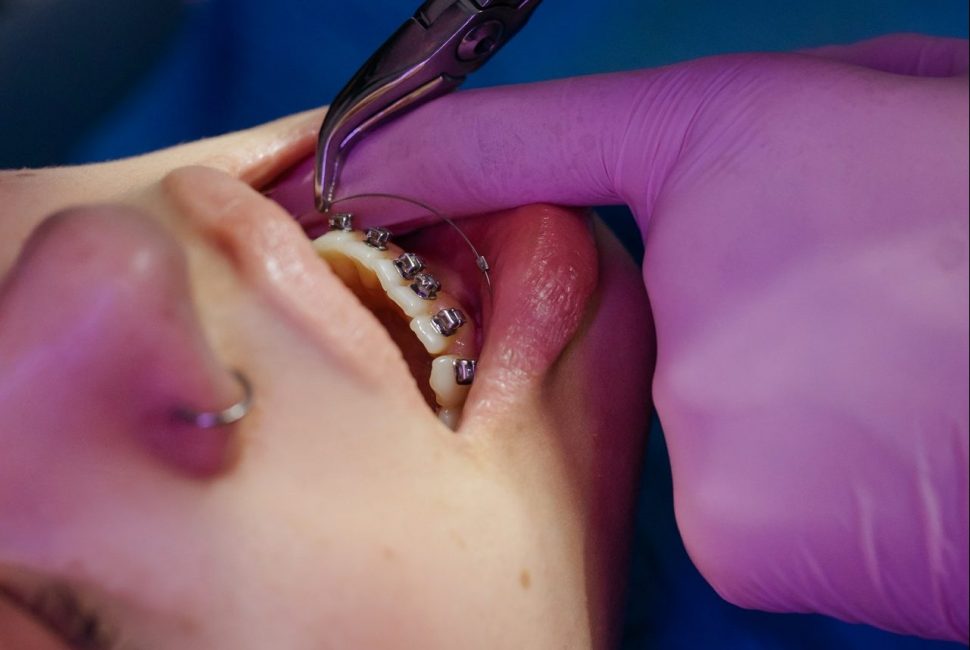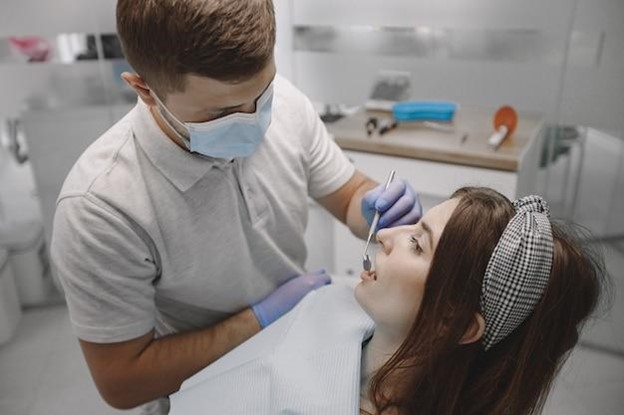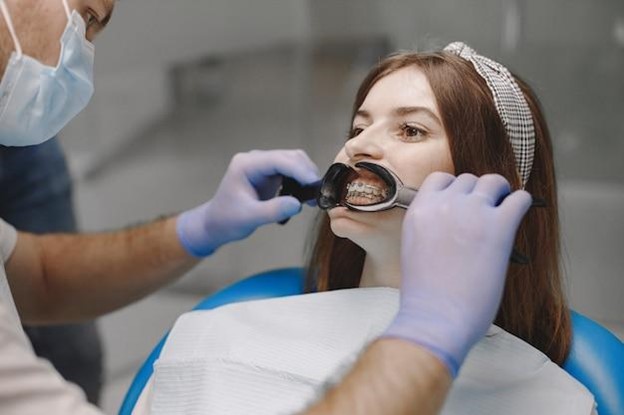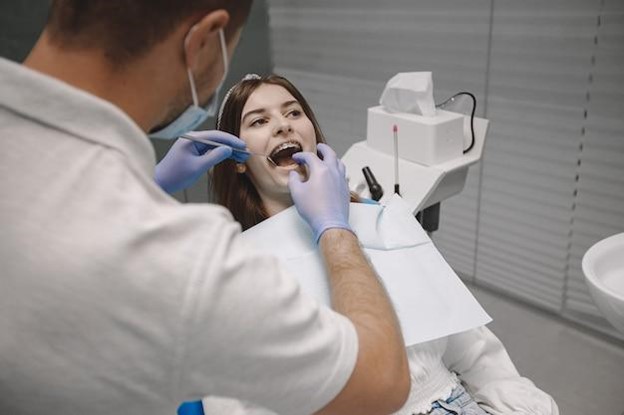What to Expect When Adjusting Your Braces

When getting your braces adjusted at regular intervals by your orthodontist, most patients will feel sore for anywhere from a few hours to a few days after.
In this article we’ll cover why your braces need to be adjusted, how often you should get them tightened, what happens when you get them adjusted and what you should do to ease the discomfort you may feel afterwards.

Why Do Braces Need to Be Tightened?
The primary reason that your braces need to be tightened using professional orthodontic adjustments is to ensure that your braces are successfully moving your teeth.
Braces apply pressure to your teeth which allow the teeth to move towards the desired position. As your teeth move, the braces become loose-fitting and need to be tightened and readjusted by an orthodontist to make sure that there is constant pressure applied to your teeth constantly.
Your orthodontist will use rubber bands and fresh elastics to adjust your braces and wires by gently applying pressure to ensure your teeth are moving in the right direction.

How Often Do You Have to Get Your Braces Tightened?
Your orthodontist will schedule check-up appointments every 4-8 weeks for adjustments.

How Long Does It Take to Tighten Braces?
On average, an orthodontic adjustment appointment takes about 20-30 minutes.
How Do Orthodontists Tighten Braces?
When getting a braces adjustment, you can expect:
- The removal of your rubber bands that hold the brackets to the archwire (if your braces are self-ligating, there are no rubber bands because the brackets have special gates that secure the wire in place)
- The detachment of the archwire
- Next, an orthodontist will then examine your teeth and their positioning
- After this, your orthodontist will either put your old archwire or a new archwire back onto your brackets
- Finally, your orthodontist will put on new elastic ligatures to hold the brackets to the archwire (not necessary for self-ligating braces)
Does Getting Your Braces Tightened Hurt?
After getting your braces adjusted and tightened you can expect a bit of soreness and pain for a couple of days. Don’t worry, this is normal as adjusting and tightening your braces means increased pressure as your teeth move into their new position. Every adjustment is a step in the right direction towards straight teeth.

How Long Do Braces Hurt After Tightening?
This is completely unique to the individual but normally patients experience slight discomfort for 1-3 days after the appointment. After the first six months of having your braces fitted, soreness and discomfort tends to reduce after each appointment.
How to Reduce Braces Pain and Discomfort from Having Braces Adjusted
9 Tips for Braces Pain Relief
You may feel some pain when the braces are changed and adjusted – this includes tightening braces, bending or as needed, replacing the wires – but there are ways to get pain relief:
1) Oral anesthetics
Using either a cotton swab or your finger, rub an oral anesthetic such as Anbesol or Orajel directly on your sensitive teeth and gums. Oral anesthetics desensitize your gums and teeth which helps to alleviate discomfort or pain that you may be feeling while your teeth shift acutely.
2) Over-the-counter pain relief medicine
When taking over-the-counter medicine, make sure you read the instructions and follow the dosage instructions carefully.
3) Use an icepack
4) Drink cold water
5) Eat soft foods
6) Orthodontic wax
Your orthodontist will most likely send you home with a nontoxic orthodontic wax. This wax is great for pain relief as it safeguards the inside of your gums, cheeks and lips from the brackets of the braces by creating a barrier that keeps the sharp ends of the brackets from further irritating your mouth. Make sure you follow the instructions given by your orthodontist when using the orthodontic wax.
7) A gum massage
If your gums are swollen, try gently rubbing your gums in a circular fashion with one of your fingers. You can do this with just a finger or with a block of ice until your swollen gums are relaxed.
8) A warm saltwater rinse
If you have any cuts or sores in your mouth and on your gums from the braces after you’ve gotten them tightened, gurgling warm salt water can help heal the cuts and sores and alleviate any pain that you may be feeling.
9) You need to be patient
Don’t lose sight of your goal: a beautiful, jaw-dropping, healthy smile. The discomfort and pain that you’re experiencing will only last a few days, but your new smile will be with you all the time. Make sure you take proper care of it post tightening.
What to Eat After Getting Braces Tightened
Soft Foods to Eat After Getting Braces Tightened
To prevent discomfort further, depending on your tooth sensitivity, you should be mindful of what you eat after your braces’ adjustment. The foods you eat should be easy to chew and swallow. These include:
- Bananas
- Eggs
- Mashed potatoes
- Noodles
- Oatmeal
- Rice
- Smoothies
- Soups
- Tortillas
- Yoghurt
Foods To Avoid After Getting Braces Tightened
There are a few foods that you need to stay away from after you’ve got your braces tightened as these can cause more pain and discomfort. These are:
- Chewy Candies
- Chips
- Granola
- Hard Vegetables and Fruits (apples, carrots, grapes, pears, etc.)
- Nuts
- Tough And Hard Meats
If you want to know more about the foods you should avoid, check out our article: What Can You Eat with Braces?
If you’re considering braces or need a braces adjustment, get in contact with us for a free orthodontic consultation online.
At Hampstead Orthodontic Practice, our team of orthodontic experts can help determine the best orthodontic treatment option for you. We guarantee every patient finishes treatment with the most beautiful smile possible.


